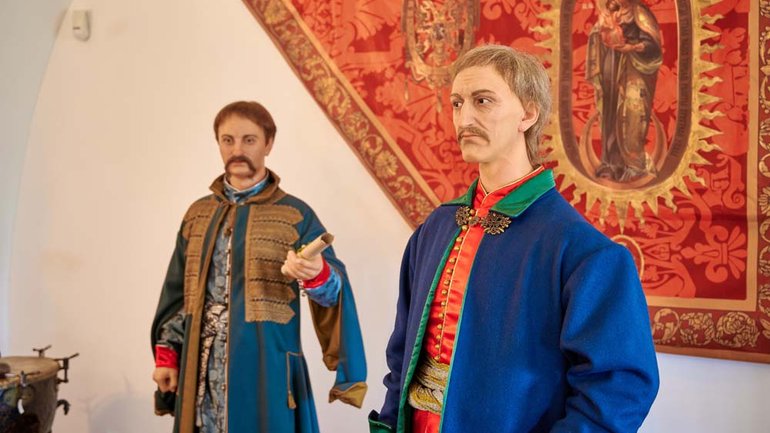A film about Ivan Mazepa will be made in Ukraine: 5 facts about the film adaptation

This is reported by Broadcast.net.
1. Why Mazeppa? Ivan Stepanovych Mazepa is an extraordinary person, a born politician, a gifted commander and diplomat, a brave, ambitious and purposeful person – he was the personification of the Ukrainian spiritual revival and flourishing of the Cossacks. Ivan Mazepa became famous not only in Ukraine and Russia but also far beyond their borders. Therefore, it would be too appropriate to make a movie that would not only tell the audience about the path of the great Hetman but also highlight some aspects of Ukrainian history.
2. On October 8, the Citadel of the Baturyn Fortress hosted a presentation of the book “Mazepa. Chronicles of an Orthodox nobleman. Ruin" is the first work of art by the famous researcher of the Hetmanate, doctor of historical sciences Tetiana Tairova. It is based on this novel and in collaboration with Tetiana that the script of the movie saga is being written. By the way, there is already the first series.
3. Two film giants announce joint work on the project – FILM.UA Group and Media Group Ukraine. It is possible that third parties, such as the state, will be involved in the filming. The project budget is still unknown.
4. Authors see several seasons of the movie saga, believing that they simply cannot put everything they want to say into one.
5. The filming is planned both in Ukraine and abroad. The premiere of the project should be expected no earlier than 2023-2024.
Reference: Ivan Mazepa - military and political figure, philanthropist, Hetman of Ukraine. He came from the famous Right-Bank Ukrainian noble family Mazepa-Koledinsky. He graduated from the Kyiv-Mohyla collegium, the Jesuit College in Warsaw, and studied for three years in Germany, Italy, France, and the Netherlands. He played the Bandura, was fond of art, collected weapons, and was a talented poet. He was fluent in Polish, Italian, German, French, Tatar, and Latin.
For a long time, he served at the court of the Polish King John II Casimir. In 1663, he returned to Ukraine. He enrolled in the service of Hetman Pyotr Doroshenko (1669), performed important diplomatic missions. Subsequently, he became a confidant of Hetman Ivan Samoilovich.
After being elected Hetman (1687), he sought to unite the Ukrainian lands in a single state, to revive the authority of the Hetman's power. The Civil War ("Ruin") stopped, the country's economic revival began, and the international image of Ukraine was strengthened.
He directed considerable funds for the church and civil construction in Kyiv, Chernihiv, Baturin, Pereyaslav, and Glukhiv. He financed the construction of the Kyiv-Mohyla Academy and Chernihiv collegium. At his own expense, he built 12 new churches, restored 20 more, and gave precious things to churches (in particular, the Peresopnytsia Gospels, on which the current Ukrainian presidents swear an oath). He defended the interests of Ukrainian orthodoxy in disputes with the top of the Moscow Patriarchate.
Ivan Mazepa's desire to expand the autonomy of the Hetmanate ran counter to the policy of the Russian Tsar Peter I.
During the Northern War, he signed an agreement with King Charles XII of Sweden, according to which Sweden was supposed to ensure the liberation of Ukraine from Moscow for helping the Ukrainians in the war against the Muscovites. Since then, all Ukrainians who participated in the National Liberation Movement have been disparagingly called "Mazepa followers" by Russians.
After the defeat in the Battle of Poltava (June 17, 1709), he retreated to Bendery (Moldova), where he died on the night of September 22, 1709.
By order of Tsar Peter I, the Russian Orthodox Church declared anathema to Ivan Mazepa. In September 2018, the Ecumenical Patriarchate announced that it had never recognized non-canonical anathema because it was imposed purely for political reasons.









